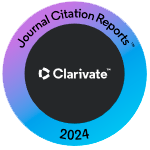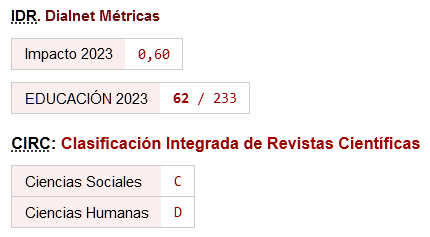The Psychological Impact of COVID-19 Pandemic on Elite Athletes, Management Strategies and Post-pandemic Performance Expectations: A Semi Structured Interview Study
DOI:
https://doi.org/10.46661/ijeri.4863Keywords:
COVID-19, elite athlete, pandemic, post-pandemic performance expectations, psychological impact, SportsAbstract
This article investigates the psychological impact of COVID-19 pandemic on elite athletes, their management strategies, and post-pandemic athletic performance expectations. Based on a purposive and snowball sampling technique eighteen elite athletes were interviewed online. The questioning includes thoughts, emotions, and behaviors in the pandemic process. Most athletes have concerns regarding the future (31.5%) and gained self-awareness (26.3%). 40% of athletes have been struggling with anxiety, however, 40.47 % of whom doing physical training at home while 33.33% of those are into mental training. Besides, 72.22% of athletes expect to lower their post-pandemic athletic performance. As a result of the study, most elite athletes have been going through anxiety about future enigma related to both sports environment and athletic performance. They mostly were able to overcome the process by doing physical and mental training at home. Most of them have expected to lower their athletic performance after getting back to the field.
Downloads
References
Akhtar, M. (2017). What is post traumatic growth. Duncan Baird Publishers.
Alexander, V., & Krane, V. (1996). Relationships among performance expectations, anxiety, and performance in collegiate volleyball players. Journal of Sport Behavior, 19(3), 246. Retrieved from: https://search.proquest.com/docview/215882631?accountid=11054
Auerbach, C., & Silverstein, L. B. (2003). Qualitative data: An introduction to coding and analysis. NYU Press.
Bao, Y., Sun, Y., Meng, S., Shi, J., & Lu, L. (2020). 2019-nCoV epidemic: address mental health care to empower society. The Lancet, 395(10224), 37-38. https://doi.org/10.1016/S0140-6736(20)30309-3
Bryman, A. (2015). Social research methods. Oxford University Press.
Chantal, Y., Guay, F., Dobreva-Martinova, T., & Vallerand, R.J. (1996). Motivation and elite performance: An exploratory investigation with Bulgarian athletes. International Journal of Sport Psychology, 27, 173–182.
Crabtree, B. F., & Miller, W. L. (Eds.). (1999). Doing qualitative research. Sage Publications.
Folkman, S., & Lazarus, R. S. (1980). An analysis of coping in a middle-aged community sample. Journal of Health and Social Behavior, 219-239. Doi: 10.2307/2136617
Fullagar, H. H., Skorski, S., Duffield, R., Hammes, D., Coutts, A. J., & Meyer, T. (2015). Sleep and athletic performance: the effects of sleep loss on exercise performance, and physiological and cognitive responses to exercise. Sports Medicine, 45(2), 161-186. https://doi.org/10.1007/s40279-014-0260-0
Hanin, Y. L. (2007). Emotions and athletic performance: Individual zones of optimal functioning model. In D. Smith & M. Bar-Eli (Eds.), Essential Readings in Sport and Exercise Psychology (p. 55–73). Human Kinetics.
Haug, T. T., Mykletun, A., & Dahl, A. A. (2004). The association between anxiety, depression, and somatic symptoms in a large population: the HUNT-II study. Psychosomatic Medicine, 66(6), 845-851. https://doi.org/10.1097/01.psy.0000145823.85658.0c
Hsieh, H. F., & Shannon, S. E. (2005). Three approaches to qualitative content analysis. Qualitative Health Research, 15(9), 1277-1288. https://doi.org/10.1177%2F1049732305276687
Kuzel, A. J. (1992). Sampling in qualitative inquiry. In B. F. Crabtree & W. L. Miller (Eds.), Research methods for primary care, Vol. 3. Doing qualitative research (p. 31–44). Sage Publications, Inc.
Lazarus, R. S., & Folkman, S. (1984). Stress, appraisal, and coping. Springer Publishing Company.
Mamassis, G., & Doganis, G. (2004). The effects of a mental training program on juniors pre-competitive anxiety, self-confidence, and tennis performance. Journal of Applied Sport Psychology, 16(2), 118-137. https://doi.org/10.1080/10413200490437903
Oettingen, G., & Mayer, D. (2002). The motivating function of thinking about the future: expectations versus fantasies. Journal of Personality and Social Psychology, 83(5), 1198. Doi: 10.1037//0022-3514.83.5.1198
Palmer, S., & Cooper, C. (2013). How to deal with stress. Kogan Page Publishers.
Pierceall, E. A., & Keim, M. C. (2007). Stress and coping strategies among community college students. Community College Journal of Research and Practice, 31(9), 703-712. https://doi.org/10.1080/10668920600866579
Pu, J., Hou, H., & Ma, R. (2017). The mediating effects of self-esteem and trait anxiety mediate on the impact of locus of control on subjective well-being. Current Psychology, 36(1), 167-173. https://doi.org/10.1007/s12144-015-9397-8
Republic of Turkey Ministry of Health (2020). Retrieved from: https://covid19bilgi.saglik.gov.tr/tr/
Republic of Turkey Ministry of Youth and Sports (2020). Retrieved from: https://www.gsb.gov.tr/
Richards, K., Campenni, C., & Muse-Burke, J. (2010). Self-care and well-being in mental health professionals: The mediating effects of self-awareness and mindfulness. Journal of Mental Health Counseling, 32(3), 247-264. https://doi.org/10.17744/mehc.32.3.0n31v88304423806
Ridnour, H., & Hammermeister, J. (2008). Spiritual well-being and its influence on athletic coping profiles. Journal of Sport Behavior, 31(1), 81-92. Retrieved from https://search.proquest.com/docview/215872291?accountid=11054
Shi, R., Sharpe, L., & Abbott, M. (2019). A meta-analysis of the relationship between anxiety and attentional control. Clinical Psychology Review, 72 (101754). https://doi.org/10.1016/j.cpr.2019.101754
Swann, C., Moran, A., & Piggott, D. (2015). Defining elite athletes: Issues in the study of expert performance in sport psychology. Psychology of Sport and Exercise, 16, 3-14. https://doi.org/10.1016/j.psychsport.2014.07.004
Taylor, S. E., Pham, L. B., Rivkin, I. D., & Armor, D. A. (1998). Harnessing the imagination: Mental simulation, self-regulation, and coping. American Psychologist, 53(4), 429–439. https://doi.org/10.1037/0003-066X.53.4.429
Downloads
Published
How to Cite
Issue
Section
License
Copyright (c) 2020 Emre Ozan Tingaz

This work is licensed under a Creative Commons Attribution-NonCommercial-NoDerivatives 4.0 International License.











